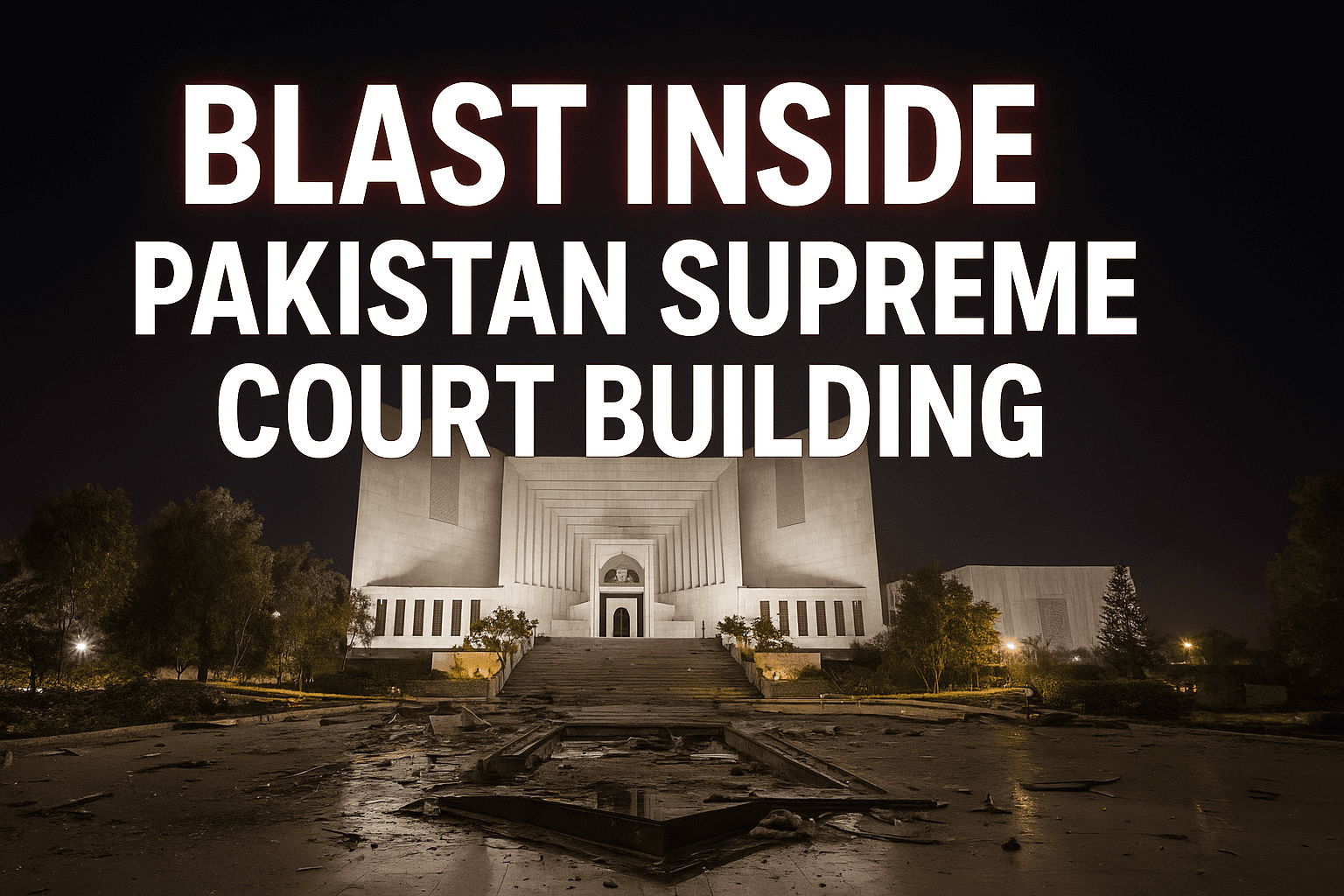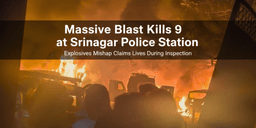The Blast That Shook Pakistan's Halls of Justice

A routine Tuesday morning. A forgotten gas leak. One young technician's life cut short. This is the story of how Pakistan's most powerful building became a scene of tragedy.
The Morning Everything Changed
Islamabad, Nov 4, 2025: At exactly 10:55 a.m., the sound of justice being served was replaced by something far more sinister: the deafening roar of an explosion tearing through Pakistan's Supreme Court.
Lawyers mid-argument. Judges reviewing case files. Staff serving tea in the basement canteen. In one violent instant, their world turned upside down.
The building shook. Glass exploded. People screamed.
"It felt like an earthquake," gasped one court employee, still trembling hours later. "Ceiling panels came crashing down. Glass flew everywhere. We just ran—we didn't know if we'd make it out alive."
What Really Happened in That Basement?
Here's what investigators pieced together from the chaos:
For three days, staff had smelled gas in the basement canteen. For three days, complaints were filed. For three days, nothing was done.
On Tuesday morning, air-conditioning technicians arrived to fix a broken unit. They didn't know they were working next to a ticking time bomb.
19-year-old Asad Muneeb was one of them: a young technician with his whole life ahead of him. He was doing his job when the accumulated gas found its spark.
The explosion was instantaneous.
The Aftermath: A Scene from a Nightmare

The blast ripped through the basement with brutal force:
- Walls cracked like eggshells
- Ceiling panels collapsed in Courtroom No. 6
- Windows shattered across multiple floors
- Thick black smoke choked the lower levels
Emergency sirens wailed as ambulances raced to the scene. Firefighters battled the smoke. Security forces locked down the area, fearing the worst.
12 people were injured. But Asad Muneeb suffered the most horrific fate: 80% of his body covered in burns. Despite desperate efforts at PIMS Hospital, the young technician's injuries were too severe.
He didn't survive.
Not a Terror Attack—But Something Worse?

Islamabad's Inspector General Ali Nasir Rizvi was quick to assure the public: "This was not terrorism."
Forensic teams found no explosives. No foul play. Just a gas leak that had been ignored for days.
But here's the terrifying question everyone's asking: If not terrorism, then what?
The answer is somehow more disturbing: systemic negligence.
This wasn't some random building. This was the Supreme Court of Pakistan: the pinnacle of the nation's judicial system, a fortress of security, a symbol of authority and order.
If a gas leak can go unaddressed here, what does that say about hospitals? Schools? Government offices across the country?
The Victim No One Saw Coming
Asad Muneeb was just 19 years old.
He wasn't a lawyer arguing landmark cases. He wasn't a judge shaping the nation's laws. He was a technician—just trying to fix an air conditioner on a Tuesday morning.
His death has become a symbol of something larger: the invisible people who keep powerful institutions running, often at their own peril.
While social media exploded with hashtags like #SupremeCourtBlast and #IslamabadExplosion, his family prepared for a funeral no parent should ever have to plan.
The Questions That Won't Go Away
As investigations continue, the public is demanding answers:
🔹 Why was a gas leak ignored for three days?
🔹 Who was responsible for maintenance at the Supreme Court?
🔹 Were there any safety protocols in place?
🔹 Could this tragedy have been prevented?
Authorities have promised a "comprehensive safety audit" of all government buildings. They've vowed "accountability for any violations found."
But how many times have we heard those promises before?
What This Means for Pakistan
This explosion has ripped open an uncomfortable truth: Pakistan's infrastructure crisis isn't just about roads and bridges—it's about the basic safety of people in their workplaces.
From hospitals that catch fire to schools that collapse, the pattern is hauntingly familiar. Small lapses. Ignored warnings. Preventable tragedies.
The Supreme Court blast is different only in location—not in cause.
Experts warn that without serious reform, more Asad Muneebs will pay the price for someone else's negligence.
The Final Word
The investigation report is expected soon. Someone, somewhere, will likely be held accountable—at least on paper.
But for Asad Muneeb's family, no report will bring their son back.
For the 12 injured, no investigation will erase the trauma.
And for millions of Pakistanis working in aging, poorly maintained buildings across the country, this blast is a chilling reminder:
It could have been any of them.
This tragedy isn't just about a gas leak. It's about what happens when we normalize neglect in places that should be the safest. The Supreme Court explosion isn't an isolated incident—it's a warning we can no longer ignore.
Related Posts
 Iran's 2026 Protests: When Hunger Turned to Rage
Iran's 2026 Protests: When Hunger Turned to RageJanuary 12, 2026

 Murder by Mob: The Death That Demands Accountability
Murder by Mob: The Death That Demands AccountabilityDecember 25, 2025

